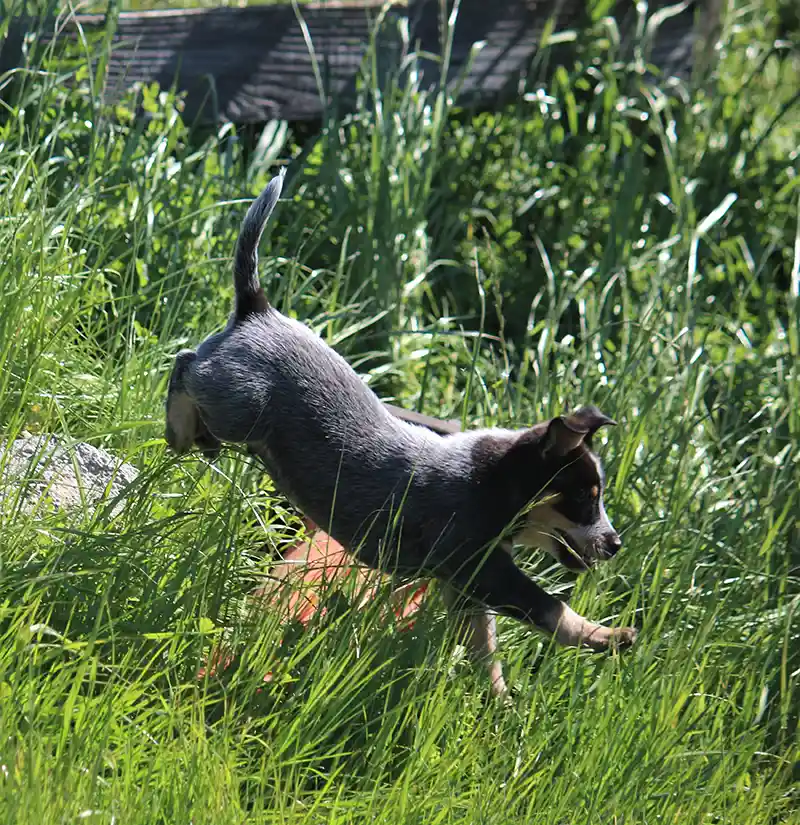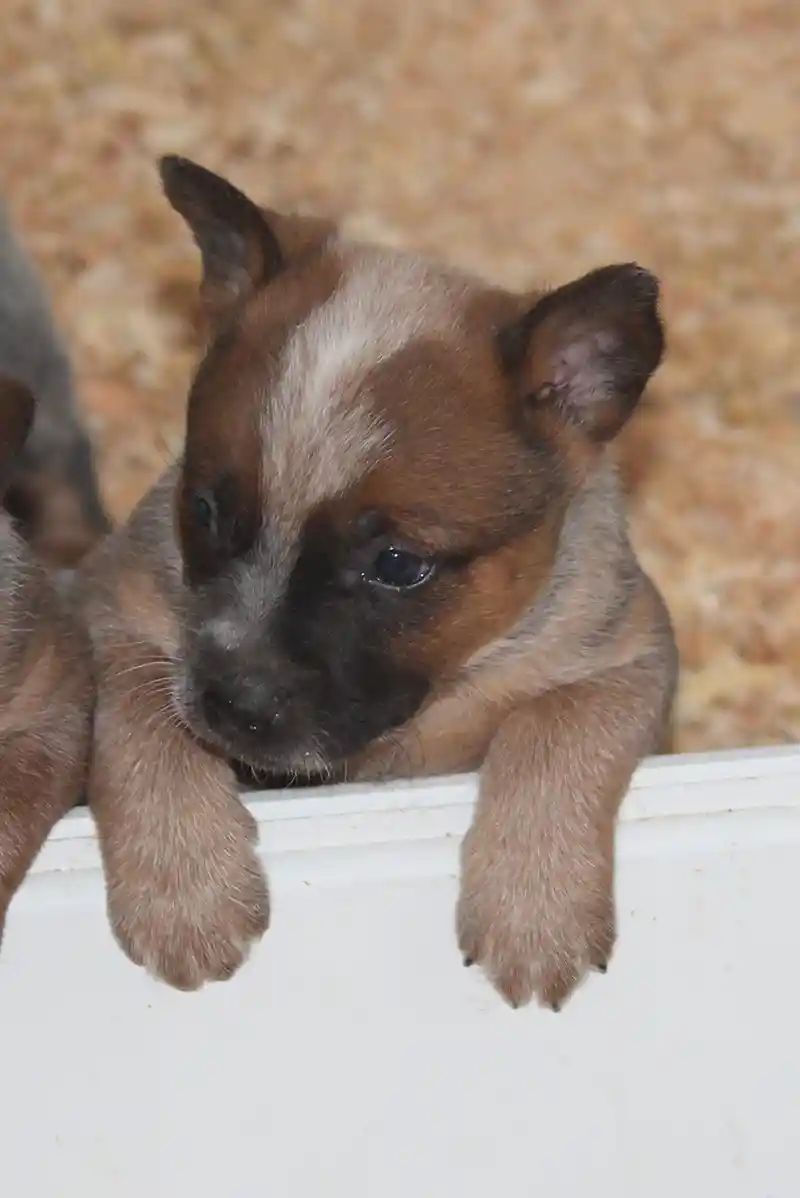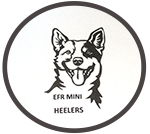Ethical Heeler Breeder
For optimum health you want a Mini Heeler breeder who genetic disease tests their breeding animals and doesn’t mate related dogs. Responsible breeders can provide ancestries of the parent mini heelers with registration papers. For great behavior, you want dogs that are home raised, with potty training and early socialization started.
A dedicated Heeler breeder should have their puppies registered. AKC, UKC and CKC don’t recognize Mini Heelers (or mini cattle dogs) as a breed at this time. North American Purebred Registry does, as well as ASDR, American Stock Dog Registry. I prefer ASDR as they provide a lot for their breeders. They have many ASDR sanctioned dog shows including performance classes:
- ASDR Rally
- ASDR Agility
- ASDR Nose work trials
- Trick Dog Program
- Conformation Shows
- Junior Showmanship classes
- Polite Herding Dog Program
Many divisions are for both adults and junior exhibitors.
You can learn more about ASDR dog shows on the ASDR website.
I am not aware of any dog shows put on by the North American Purebred Registry, Inc.
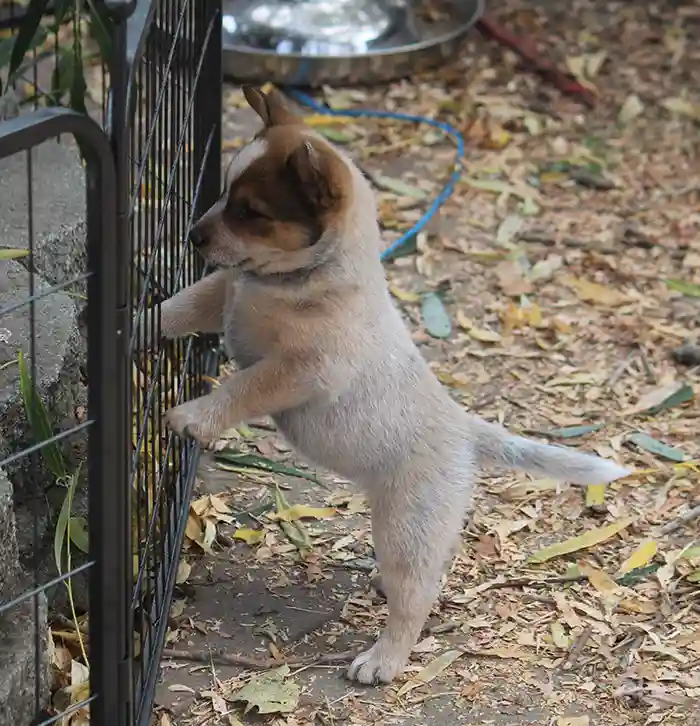

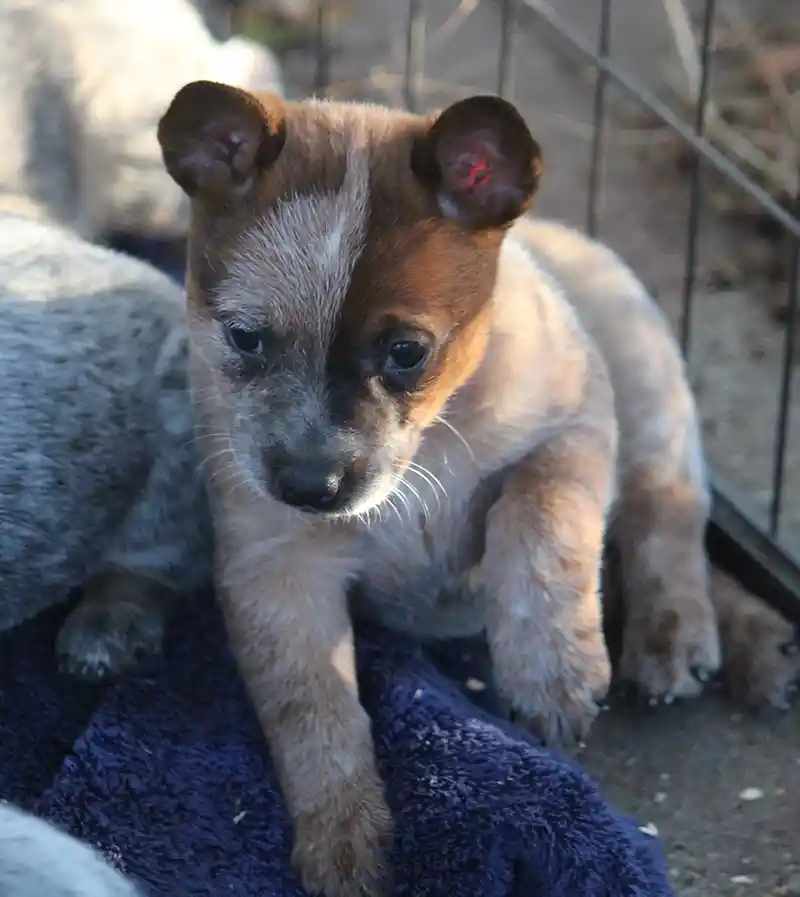
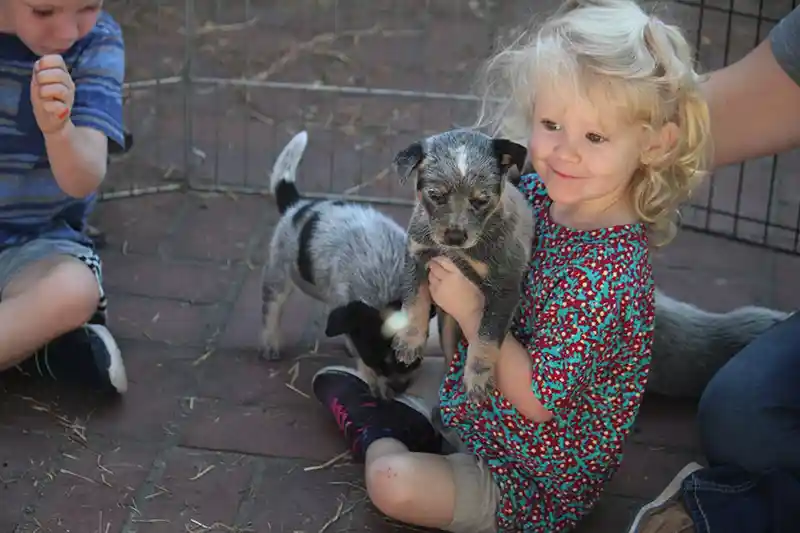
Mini Heelers Health
It’s important to buy from a Heeler breeder who does genetic disease panel testing and understands the results. There are 10 main genetic diseases that should be tested for in the Mini Heelers. 8 of the genetic diseases in dogs are inherited in an Autosomal Recessive manner in dogs meaning that a puppy must receive 2 copies of the mutated gene (one from each parent) to develop the disease. In general, carrier dogs do not have features of the disease but when bred with another carrier of the same mutation, there is a risk of having affected pups.
Each pup born to carrier parents has a 25% chance of inheriting the disease and a 50% chance of inheriting one copy of the gene and becoming a carrier. This is why reliable genetic testing is important for determining breeding practices. In order to eliminate the mutations from breeding lines and to avoid the potential of producing affected pups, breeding of known carriers to each other is not recommended. Dogs that are not carriers of the mutation have no increased risk of having affected pups.
The other 2 diseases found in Heelers are Cystinuria (ACD type) which is transferred in an Autosomal Dominant manner and Primary Lens Luxation or PLL which is inherited in an Autosomal Incomplete Dominant manner.
Cystinuria (ACD type), which is inherited in an Autosomal manner in dogs meaning that they only need to inherit one copy of the mutated gene from a parent to develop the disease. Dogs identified to have the genetic Mutation are expected to have features of the disease, though symptoms can be very mild and dogs may appear healthy. Each pup that is born to a single affected parent has a 50% chance of inheriting one copy of the gene mutation and having the disease. If both parents are affected, the chance of having affected offspring increases to 75-100%. Reliable genetic testing is important for determining breeding practices. In order to eliminate this mutation from breeding lines and to avoid the potential of producing affected pups, breeding of known carriers is not recommended. Australian cattle dogs that are not carriers of the mutation have no increased risk of having affected pups.
Primary lens luxation is inherited in an autosomal incomplete dominant manner in dogs meaning that dogs only need to inherit one copy of the mutated gene to be at an increased risk of developing the disease. Though lens luxation is most commonly seen in dogs having two copies of the mutated gene, carrier dogs have a low, but increased risk of lens luxation. Thus, dogs that have one or two mutant copies of the gene are considered at-risk for lens luxation. Reliable genetic testing is important for determining breeding practices. Because symptoms may not appear until adulthood, genetic testing should be performed before breeding.
Heeler Breeders for Behavior
The Mini Heeler is bred to be a smaller version of the Queensland, Red or Blue heeler, AKA the Australian Cattle Dog. The ACD is a sturdy, compact, agile, muscular herding dog with great stamina. They are an extremely intelligent, active breed. They were developed by Australian settlers to handle herds of cattle on expansive ranches, and they are still used today as a herding dog. They thrive on having a job to do and on being part of all family activities. Ideally, the Mini was created by breeding small heelers to other small heelers. Some people were in a hurry to create the smaller heeler version and introduced other breeds such as the chihuahua to create the smaller size.
The mini is a reactive breed, alert to anything that moves, they don’t miss much. This makes early socialization very important for a Mini. If you want to adopt a dog that will grow up and be a great canine companion then buy from a breeder that:
Raises the puppies as part of the family, with lots handling and exposure to people within the household and people from outside. Don’t buy from a Heeler breeder that leave them in a kennel with very little human contact. You want to buy a dog that is ready to become a part of your family when adopted.
Buy from a Heeler breeder that gets potty training started early on. This will make it much easier for you and the puppy to finish the potty training process.
Buy from a breeder that offers lifetime support, and that stresses how important early socialization is. Invite friends and family over to interact with your puppy. Take your puppy to stores like Tractor Supply, Wilco and the Feed store with you. Enroll him/her in puppy kindergarten. Don’t neglect early socialization or you may end up with a wary, unfriendly dog.
